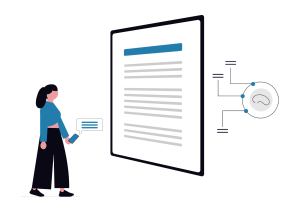6.1 Critical Thinking in the Age of Artificial Intelligence

The age of Artificial Intelligence (AI) is rapidly reshaping the way we think, make decisions, and solve problems. As AI systems become increasingly sophisticated, capable of generating ideas, analyzing data, and even engaging in conversation, the role of critical thinking—traditionally a human domain—demands re-examination. Understanding the interplay between human and artificial intelligence is crucial not only for harnessing the potential of this tool but also for preserving and refining our distinctly human cognitive skills.
Key Differences Between Human Intelligence (H.I.) and Artificial Intelligence (A.I.)
| Aspect | H.I. | A.I. |
|---|---|---|
| Origin | Biological – experiential | Computational–engineered |
| Learning Mechanism | Intuitive, emotional, experiential | Statistical, data-driven, algorithmic |
| Flexibility | Highly adaptive across different contexts | Task-specific unless specifically trained |
| Creativity | Frequently emergent and spontaneous | Pattern-based imitation of previously given examples |
| Bias AND Emotion | Naturally and spontaneously derived from a response to internal and external factors | None, except that which is fed into it by engineers |
| Awareness | Conscious, insightful | No self-awareness – goal-driven output |
Let’s reflect briefly on the content of the chart above.
Artificial Reasoning operates using logic and probability models. It excels at recognizing patterns and handling massive datasets. However, it lacks the human sensitivity that produces nuanced contexts. It can possibly be trained to produce limited shades of perception through the imitation of previously fed human responses to specific cases.
Now, a more important consideration is that Artificial Intelligence cannot reason morally or ethically without having the previous input of human reasoning in case-specific scenarios. It’s essential to recognize that human reasoning encompasses emotion, intuition, and moral judgment, and human intelligence is shaped by context, empathy, and individual experience. This enables us to produce what is called abductive reasoning, which is when we make creative leaps based on limited data. Yes, we are prone to cognitive biases, but we are also capable of self-correction and critical reflection.

